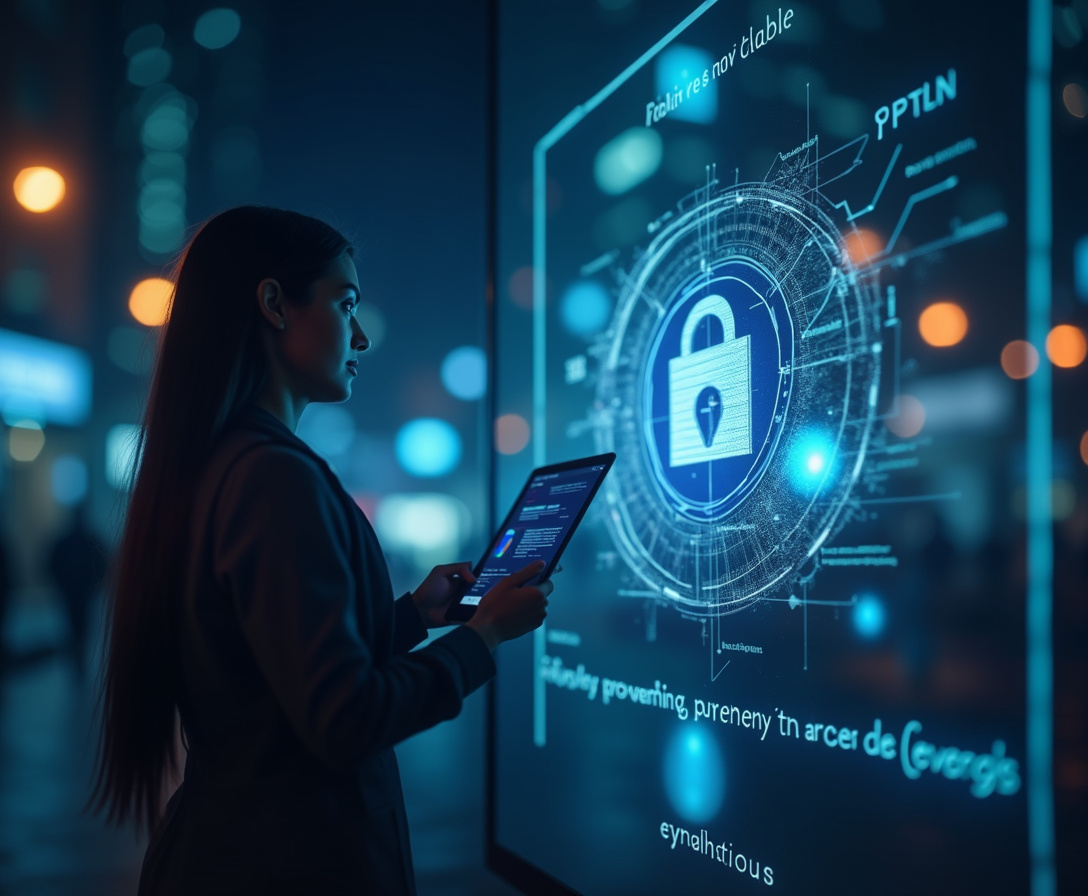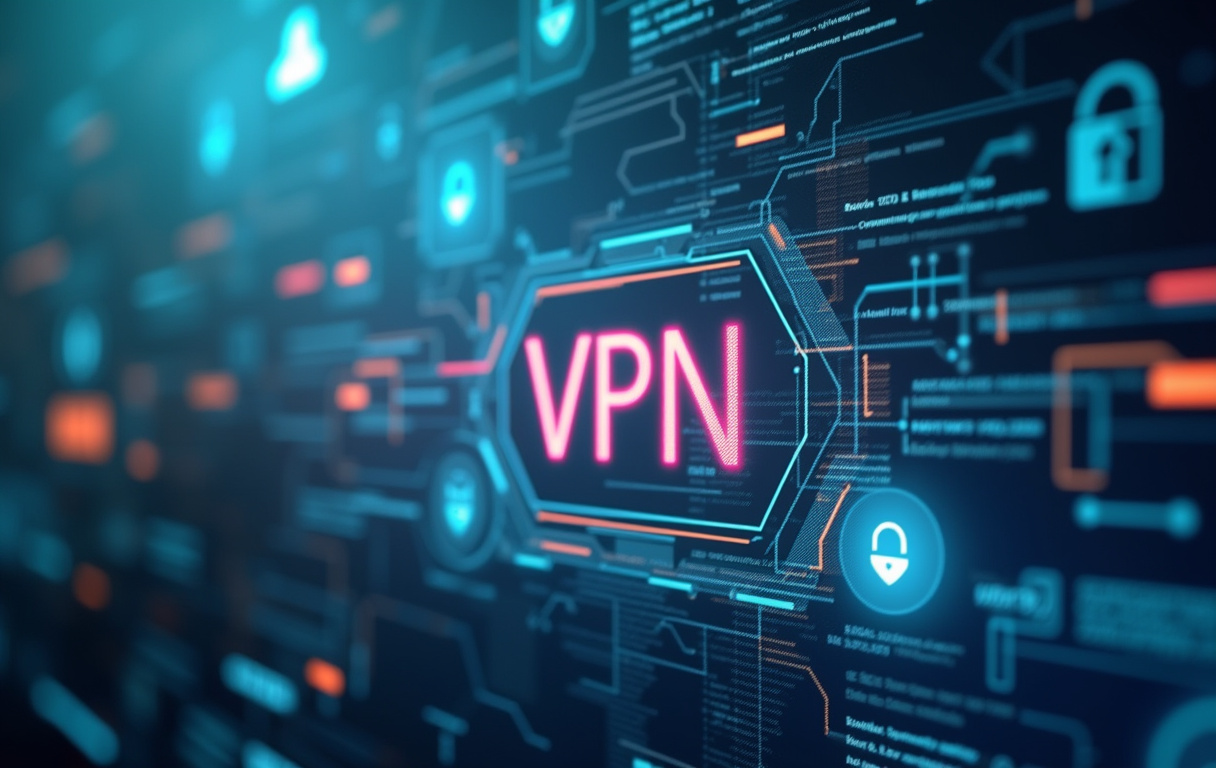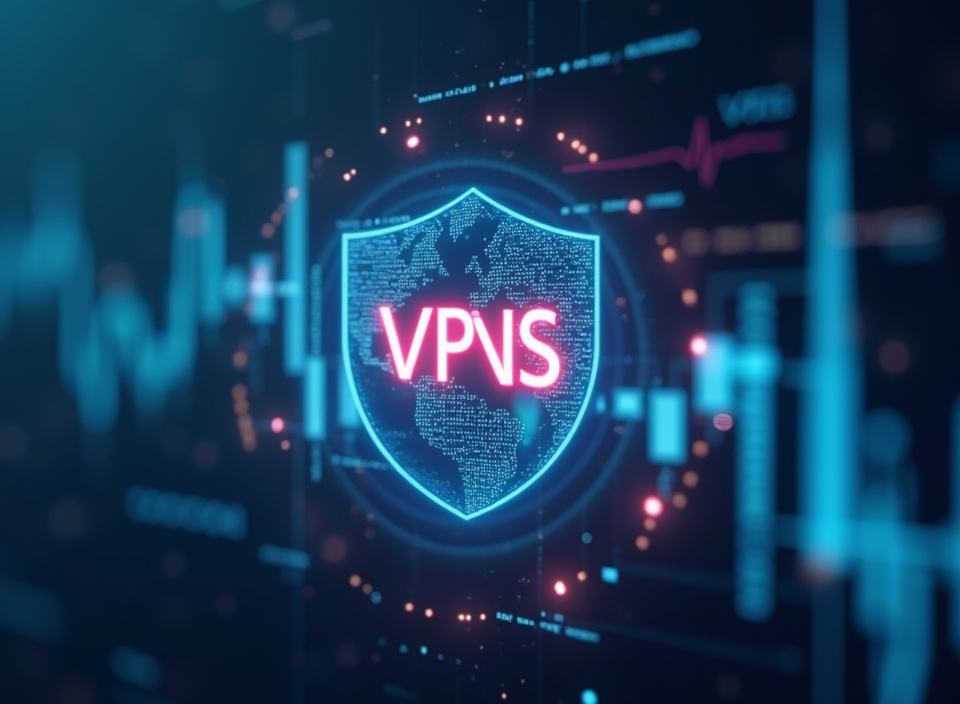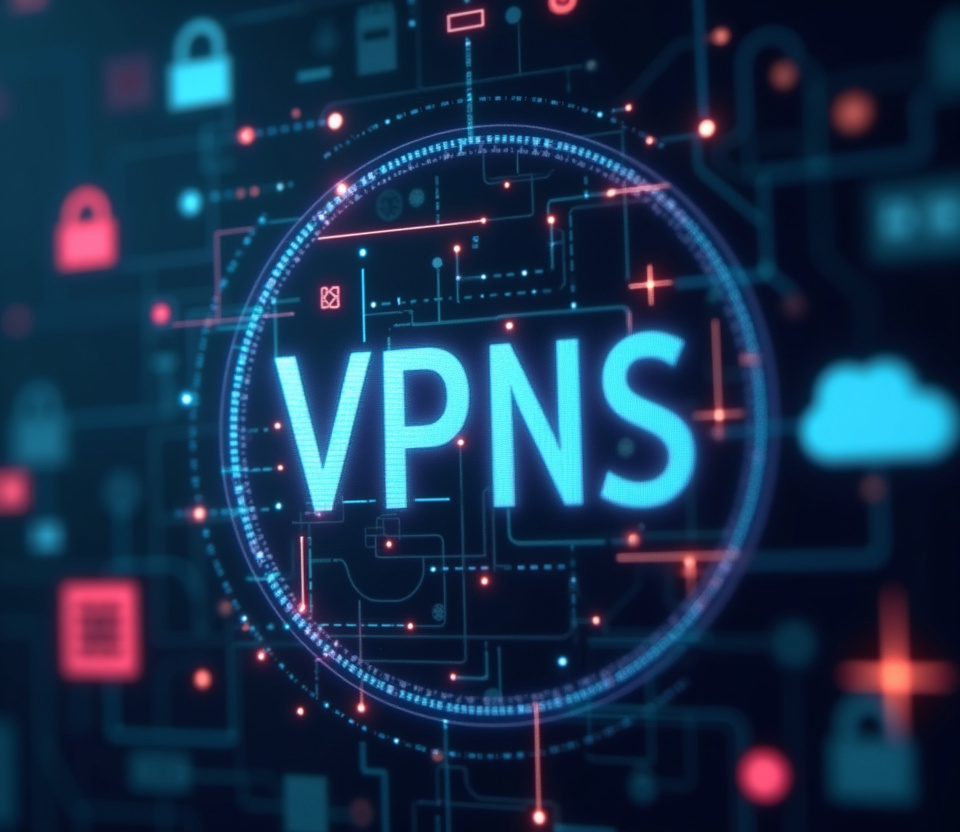VPNs for Public Wi-Fi: Protecting Your Connection

Table of Contents
secure connection
In an era defined by ubiquitous connectivity, public Wi-Fi hotspots have become indispensable for staying connected on the move. These readily available networks, dotting cafes, airports, and hotels, offer a convenient gateway to the internet. However, this ease of access comes at a cost: public Wi-Fi networks are notoriously insecure, making them prime targets for cybercriminals seeking to intercept sensitive data.
Without adequate protection, your personal information, financial details, and even login credentials can be exposed, leaving you vulnerable to identity theft, financial fraud, and a host of other cyber threats. This article delves into the risks associated with public Wi-Fi and explores how a Virtual Private Network (VPN) can act as a shield, creating a that safeguards your online activity. We will uncover how VPNs encrypt your data, , and provide essential , empowering you to navigate public networks with confidence.
The allure of free and readily available internet access can often overshadow the inherent dangers lurking beneath the surface of public Wi-Fi networks. These networks, while convenient, typically lack the robust security measures found in private, password-protected networks. This absence of security makes public Wi-Fi a breeding ground for cybercriminals employing various techniques to from occurring while you transfer data through the network.
One of the most common threats is "packet sniffing," where attackers use specialized software to capture and analyze data packets traveling across the network. These packets can contain a wealth of sensitive information, including usernames, passwords, credit card numbers, and even personal messages. Imagine sipping your coffee at a local cafe, casually browsing your email – unaware that a cybercriminal nearby is intercepting your login credentials.
This is the reality of unprotected public Wi-Fi. Another insidious attack vector is the creation of "fake hotspots," also known as "evil twin" attacks. Cybercriminals set up seemingly legitimate Wi-Fi networks with names similar to those of legitimate businesses or venues.
Unsuspecting users connect to these fake hotspots, unknowingly routing their traffic through the attacker's server. This gives the attacker complete control over the user's connection, allowing them to monitor browsing activity, intercept sensitive data, and even inject malicious code into websites the user visits. Picture yourself in an airport, connecting to a seemingly official "Airport Free Wi-Fi" network – only to discover that it's a trap set by a cybercriminal to steal your data.
Moreover, even seemingly secure websites using HTTPS encryption can be vulnerable on public Wi-Fi. While HTTPS encrypts the data transmitted between your computer and the website's server, it doesn't protect your data while it's in transit over the unsecured Wi-Fi network. An attacker can still intercept the encrypted traffic and potentially use sophisticated techniques to decrypt it or extract valuable information from it.
This highlights the limitations of relying solely on HTTPS for security on public Wi-Fi. Furthermore, public Wi-Fi networks often lack proper firewalls and intrusion detection systems, leaving users exposed to malware and other cyber threats. Hackers can exploit vulnerabilities in your device's operating system or applications to install malicious software that can steal your data, track your activity, or even take control of your device.
The stakes are high when it comes to public Wi-Fi security. Falling victim to a cyberattack can result in significant financial losses, identity theft, damage to your reputation, and even legal repercussions. By understanding the risks associated with public Wi-Fi, you can take proactive steps to protect yourself and minimize your vulnerability to cyber threats.
secure connection
A VPN acts as a crucial safeguard when navigating the treacherous waters of public Wi-Fi networks. By creating a , a VPN encrypts all the data transmitted between your device and a remote server, effectively shielding your online activity from prying eyes. This encryption process transforms your data into an unreadable format, rendering it useless to anyone attempting to intercept it.
Even if a cybercriminal manages to capture your traffic, they won't be able to decipher the encrypted data without the proper decryption key. Think of it as sending your data through a secret, impenetrable tunnel, invisible and inaccessible to those lurking on the public Wi-Fi network. One of the primary benefits of using a is its ability to .
As mentioned earlier, public Wi-Fi networks are susceptible to various interception techniques, such as packet sniffing and "evil twin" attacks. A VPN effectively neutralizes these threats by encrypting your data before it leaves your device, ensuring that even if your traffic is intercepted, it remains unreadable to the attacker. This protection extends to all types of data, including usernames, passwords, credit card numbers, personal messages, and browsing history.
Imagine logging into your bank account on public Wi-Fi without a VPN – your username and password could be intercepted and used to access your account. However, with a VPN, your login credentials are encrypted, rendering them useless to any would-be thief. A VPN also masks your IP address, which is a unique identifier that reveals your location and internet service provider.
By routing your traffic through a VPN server, your real IP address is hidden, and you appear to be browsing from the location of the VPN server. This effectively anonymizes your online activity, making it difficult for websites and advertisers to track your movements and collect data about your browsing habits. This is particularly useful when using public Wi-Fi, as it prevents websites and third parties from identifying you and tracking your activity across different networks.
Consider the scenario where you're researching a sensitive medical condition on public Wi-Fi. Without a VPN, websites and advertisers could track your browsing activity and target you with personalized ads based on your medical interests. A VPN, however, prevents this type of tracking, protecting your privacy.
In addition to encryption and IP address masking, a VPN also protects against DNS leaks. DNS (Domain Name System) is the system that translates domain names (e.g., google.com) into IP addresses. When you visit a website, your device sends a DNS request to a DNS server to resolve the domain name.
Without a VPN, your DNS requests are typically handled by your internet service provider's DNS servers, which can track your browsing activity and potentially share it with third parties. A VPN reroutes your DNS requests through its own secure DNS servers, preventing your ISP from tracking your browsing activity and protecting you from potential DNS leaks. A DNS leak occurs when your DNS requests are not properly routed through the VPN, revealing your actual IP address and location to your ISP and other third parties.
This can undermine the anonymity and security provided by the VPN. A reliable VPN will have built-in mechanisms to and ensure that your DNS requests are always routed through the VPN's to the VPN's secure servers.
Wi-Fi protection
Beyond encryption and IP address masking, a comprehensive VPN solution offers a suite of additional features that enhance your and overall online security on public networks. These features often include a kill switch, which automatically disconnects your internet connection if the VPN connection drops, preventing your data from being exposed on the unsecured network. Imagine downloading a large file on public Wi-Fi when suddenly your VPN connection fails.
Without a kill switch, your download would continue over the unsecured network, exposing your IP address and potentially revealing other sensitive information. A kill switch ensures that your internet activity is immediately halted until the VPN connection is restored, safeguarding your privacy. Another valuable feature is split tunneling, which allows you to choose which applications or websites to route through the VPN connection and which to access directly.
This can be useful for optimizing your internet speed and performance, as you can bypass the VPN for non-sensitive activities like streaming videos or playing online games. However, it's crucial to exercise caution when using split tunneling, as any data transmitted outside the VPN connection will be unencrypted and vulnerable to interception. For example, you might choose to route your banking app and email client through the VPN while accessing social media directly.
However, it's essential to ensure that all sensitive applications and websites are always routed through the VPN to maintain your security. Furthermore, many VPN providers offer advanced security protocols, such as OpenVPN, IKEv2/IPSec, and WireGuard, which provide strong encryption and authentication. These protocols use sophisticated algorithms to secure your data and prevent unauthorized access.
It's important to choose a VPN provider that supports these modern security protocols and regularly updates its software to address any potential vulnerabilities. The strength of the encryption and the security of the protocols used are crucial factors in determining the level of protection offered by a VPN. In addition to these technical features, a reputable VPN provider will also have a strict no-logs policy, meaning that they do not collect or store any data about your browsing activity, IP address, or connection timestamps.
This ensures that your privacy is protected even from the VPN provider itself. It's crucial to carefully review the VPN provider's privacy policy to understand what data they collect and how they use it. Some VPN providers may claim to have a no-logs policy but still collect certain data, such as bandwidth usage or connection times.
A truly no-logs VPN provider will not store any information that can be used to identify you or track your online activity. When choosing a VPN for protection, it's also essential to consider the server locations offered by the provider. The closer the VPN server is to your actual location, the faster and more reliable your connection will be.
A wide range of server locations also allows you to bypass geographic restrictions and access content that may be blocked in your region. However, it's important to choose server locations that are located in countries with strong privacy laws to further protect your data.
Wi-Fi protection
The process of setting up and using a VPN for on public networks is generally straightforward, even for those with limited technical expertise. Most VPN providers offer user-friendly apps for various operating systems, including Windows, macOS, iOS, and Android. These apps typically provide a simple interface for connecting to a VPN server and managing your settings.
To get started, you'll need to subscribe to a VPN service and download the appropriate app for your device. Once the app is installed, you'll need to log in using your account credentials. The app will then display a list of available VPN servers, which you can choose based on your preferred location or desired speed.
Before connecting, you may want to configure additional settings, such as the security protocol, kill switch, and split tunneling options. Once you're ready, simply click the "Connect" button to establish a to the VPN server. The app will then encrypt your internet traffic and route it through the VPN tunnel, protecting your data from interception.
When using public Wi-Fi, it's a good practice to connect to the VPN before accessing any sensitive websites or applications. This ensures that your data is protected from the moment you connect to the network. You can also leave the VPN running continuously while using public Wi-Fi for maximum security.
However, it's important to be aware that using a VPN can slightly reduce your internet speed due to the encryption process. The extent of the speed reduction will depend on the VPN server location, the security protocol used, and the overall performance of the VPN provider. However, for most users, the security benefits of using a VPN outweigh the minor speed impact.
Beyond simply connecting to a VPN server, there are several additional steps you can take to further enhance your on public networks. One important tip is to disable automatic Wi-Fi connection on your device. This prevents your device from automatically connecting to unsecured Wi-Fi networks without your knowledge.
Instead, you should manually select the Wi-Fi network you want to connect to and ensure that the VPN is active before connecting. Another useful tip is to enable two-factor authentication (2FA) for all your important online accounts. 2FA adds an extra layer of security by requiring you to enter a code from your phone or another device in addition to your password when logging in.
This makes it much more difficult for hackers to access your accounts, even if they manage to steal your password. Furthermore, it's crucial to keep your device's operating system and applications up to date with the latest security patches. These updates often address known vulnerabilities that hackers can exploit.
By installing these updates promptly, you can minimize your risk of being compromised by malware or other cyber threats. It's also a good idea to use a strong and unique password for each of your online accounts. Avoid using the same password for multiple accounts, as this makes it easier for hackers to compromise all your accounts if one password is stolen.
A password manager can help you create and store strong passwords securely. Finally, be wary of phishing scams and other social engineering attacks that attempt to trick you into revealing your personal information. Always double-check the sender's address and the legitimacy of any requests before providing any information.
public Wi-Fi VPN
In conclusion, leveraging a is no longer a luxury but a necessity in today's digital landscape. The inherent vulnerabilities of public Wi-Fi networks expose users to a myriad of cyber threats, ranging from data interception and identity theft to malware infections and financial fraud. By creating a and encrypting your internet traffic, a VPN acts as a powerful shield, protecting your sensitive data from prying eyes and ensuring your online privacy.
Implementing a VPN solution is a proactive measure that empowers you to navigate public Wi-Fi networks with confidence, knowing that your personal information, browsing activity, and financial details are safeguarded from potential threats. The benefits of using a VPN extend beyond mere security; it also enables online anonymity, protects against DNS leaks, and bypasses geographic restrictions, providing a comprehensive and versatile solution for enhancing your online experience. However, choosing the right VPN provider is crucial to ensure optimal security and performance.
Look for a provider with a strong reputation, a proven track record, and a clear commitment to privacy. Consider factors such as the encryption protocols used, the server locations offered, the logging policy, and the availability of a kill switch and other advanced features. A reputable VPN provider will also offer responsive customer support and regularly update its software to address any potential vulnerabilities.
Furthermore, remember that a VPN is just one component of a comprehensive security strategy. It's essential to practice safe browsing habits, use strong and unique passwords, enable two-factor authentication, and keep your device's operating system and applications up to date. By combining a VPN with these other security measures, you can significantly reduce your risk of falling victim to a cyberattack on public Wi-Fi networks.
In today's interconnected world, our reliance on public Wi-Fi is only likely to increase. As we continue to connect to these networks in cafes, airports, hotels, and other public places, it's crucial to prioritize our online security and take proactive steps to *prevent leaks* and protect our data. By understanding the risks associated with public Wi-Fi and embracing the benefits of a VPN, we can navigate the digital landscape with greater confidence and peace of mind.
Investing in a reliable service and adopting responsible online habits is an investment in your personal security and privacy, ensuring that you can enjoy the convenience of public Wi-Fi without compromising your sensitive information. Ultimately, the decision to use a VPN on public Wi-Fi is a choice between vulnerability and . Choose wisely, and protect yourself in an increasingly interconnected world, where the risks are real, and the consequences can be significant.
Embrace the power of a VPN and reclaim your online privacy and security today.
Stay Updated
Get the latest VPN news, tips, and exclusive deals to your inbox.




